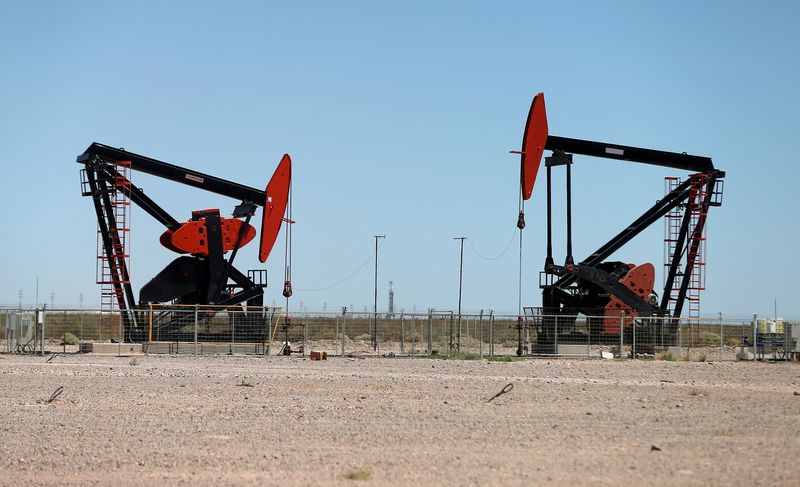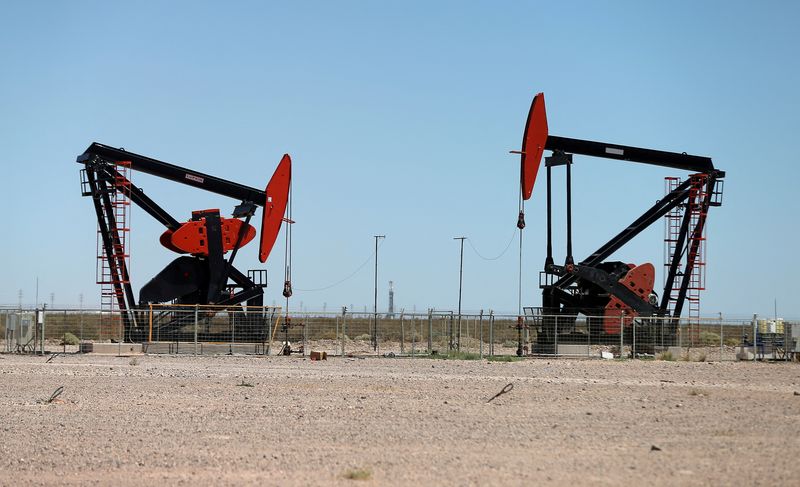
By Ahmad Ghaddar and Arunima Kumar
LONDON (Reuters) -Oil prices rose sharply on Friday, and were on track for 10% weekly gains as investors weighed the prospect of a wider Middle East conflict disrupting crude flows after President Biden said the US was discussing an Israeli attack on Iranian oil facilities.
Brent crude futures were up $1.09, or 1.4%, at $78.71 a barrel, as of 1120 GMT. U.S. West Texas Intermediate crude futures were up $1.08, also 1.5%, at $74.79 a barrel.
“While Iran has ‘saved face’ by its rocket attack on Israel on Tuesday, fears are growing that Israel might target Iranian oil infrastructure under its response, which could provoke further retaliation dragging neighbouring states into the conflict,” Panmure Gordon analyst Ashley Kelty said.
The U.S. is discussing whether it would support Israel strikes on Iran’s oil facilities as retaliation for Tehran’s missile attack on Israel, President Joe Biden said on Thursday, while Israel’s military hit Beirut with new airstrikes in its battle against Lebanese armed group Hezbollah. Biden said later in the day on Thursday he would not negotiate in public when asked if he had urged Israel not to attack Iran’s oil facilities.
Biden’s comments contributed to a 5% rally in oil prices on Thursday, as Israel weighs its options after arch-foe Iran launched its largest-ever assault on Tuesday.
“The market had already had a substantial amount of short positioning and low amounts of net length in the market – leaving the market prone to price spikes higher,” StoneX analyst Alex Hodes said.
Concerns over oil supply that drove up prices earlier in the week have also been tempered by OPEC’s spare production capacity and the fact that global crude supplies have yet to be disrupted by the Middle East unrest.

Meanwhile, Libya’s eastern-based government and Tripoli-based National Oil Corp announced on Thursday the reopening of all oilfields and export terminals after a dispute over leadership of the central bank was resolved, ending a crisis that had heavily reduced oil production.
This would allow the country to more than double its production levels, restoring them to about 1.2 million bpd.
This post is originally published on INVESTING.



